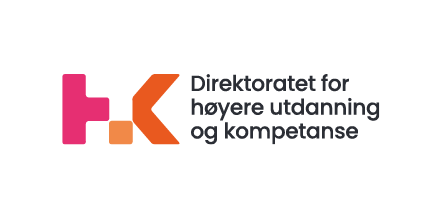Barriers to Health Care for Disabled People: A Review of the Literature from Low Income Countries
DOI:
https://doi.org/10.21776/ub.ijds.2019.006.02.11Keywords:
Disability, Health care, Low income, BarriersAbstract
Over the years, they have been suggestions that people with disabilities face barriers when accessing health care services unlike their abled counter-parts. However, information regarding the nature of these barriers, especially for those in low income and middle income countries is not abundant and very sparse. signing of the United Nations Convention on the Rights of Persons with Disabilities on May 3, 2008 is one of the most important disability actions taken to date which marked national recognition of the rights for persons with disabilities, of which included access. The studies explored in this article review issues related to access to health care and those mostly used in areas within the Sub-Saharan as their sample site. The following document contains published studies that determine if disability limits access to health care and to attempt to identify what contextual factors (environmental and personal factors), interact with to limit this access. The findings were that people with disability who came from rural areas did find it harder to access healthcare than their urban counterparts. The major reason behind this is transportation from home to the health facility. A number of other reasons were also considered, such as no services were available.
References
World Health Organization. World Report on Disability. Who Press; Geneva, Switzerland: 2011. pp. 1-24.
Leonardi M., Bickenbach J., Ustun T.B., Kostanjsek N., Chatterji C. The definition of disability: What is in a name? Lancet. 2006; 19-21.
Bickenbach J.E., Chatterji C., Badley E.M., Ustun T.B. Models of disablement, universalism and the international classification of impairments, disabilities and handicaps. Soc. Sci. Med. 1999; 73-87.
Ustun T.B., Chatterji C., Bickenbach J., Kostanjsek N., Schneider M. The International Classification of Functioning, Disability and Health: A new tool for understanding disability and health. Disabil. Rehabil. 2003; 25:26
Madans J.H., Loeb M.E., Altman B.A. Measuring disability and monitoring the UN Convenetion on the Rights of Persons with Disabilities: The work of the Washington Group on Disability Statistics. BMC Public Health. 2011; 11
Marella M., Busija L., Islam F.M., Devine A., T.J., Huq N.L., Cama A., et al. Field-testing of the rapid assessment of disability questionnaire. BMC Public Health. 2014; 14:17.
Trani J.F., Babulal G.M., Bakhshi P. Development and validation of the 34-Item Disability Screening Questionnaire (DSQ-34) for use in low and middle income countries epidemiological and development surveys. 2015:10 8.
Devine A., Armecin G.F., Zayas J. A rapid assessment of Disability in Rwanda. Understanding prevalence, well-being and access to the community for people with disabilities to inform the W-WARE Project. Pop. Health Metre. 14-26
Gulley S.P., Rasch E.K., Chan L. The Complex Web of Health: Relationships among chronic conditions, disability and health services. Public Health Rep. 2011; 49-50.
Jeon B., Kwon S., Kim H. Health care utilization by people with disabilities: A longitudinal analysis of the Korea Welfare Panel Study (KpWePS) Disab. Health. 2015; 53.
Mactaggart I., Kuper H., Murthy G.V., Oye J., Polack S. Measuring disability in population based surveys: The interrelationship between clinical impairments and reported functional limitations in Cameroon and India. PLoS ONE. 2016: 16.
Marella M., Devine A., Armecin G.F., Zayas J., Marco M.J., Vaughan C. Rapid assessment of disability in the Philippines: Understanding prevalence, well-being, and access to the community for people with disabilities to inform the W.-DARE project. Pop. Health Metr. 2016; 14:26.
R. Vergunst, L. Swartz, K.-G. Hem, A. H. Eide, H. Mannan, M. MacLachlan, G. Mji, S. H. Braathen & M. Schneider. Access to health care for persons with disabilities in rural South Africa BMC Health Services Researchvolume 17, Article number: 41 (2017).
Murthy G.V.S., John N., Sagar J., South India Disability Evidence Study Group Reproductive health of women with and without disabilities in South Africa, the SADE study (South Africa Disability Evidence) Study: a case control study. BMC Women's Health. 2014; 14.
Senghor D.B., Diop O., Sombie I. Analysis of the impact of healthcare support initiatives for physically disabled people on their access to care in the city of Saint-Loius, Senegal. BMC Health Serv. Res. 2017; 17
Brian Chiluba, Esther Munalula-Nkandu, Chola Nakazwe Daka, Mumbi Chola, Gershom Chongwe, Cardiovascular Disease Risk from Protease Inhibitors-ART for HIV: Retrospective Cohort of University Teaching Hospital, Zambia, Cardiology and Cardiovascular Research. Vol. 1, No. 4, 2017,pp.98-103.doi: 10.11648/j.ccr.20170104.11.
Brian Chanda Chiluba and Wana Gift Njapawu. Barriers Of Persons With Physical Disability over Accessibility and Mobility to Public Buildings in Zambia.Indonesian Journal of Disability Studies (IJDS).2019: Vol. 6(1): PP 53-63.
Downloads
Published
How to Cite
License
Copyright (c) 2019 Brian Chanda Chiluba

This work is licensed under a Creative Commons Attribution-NonCommercial 4.0 International License.















